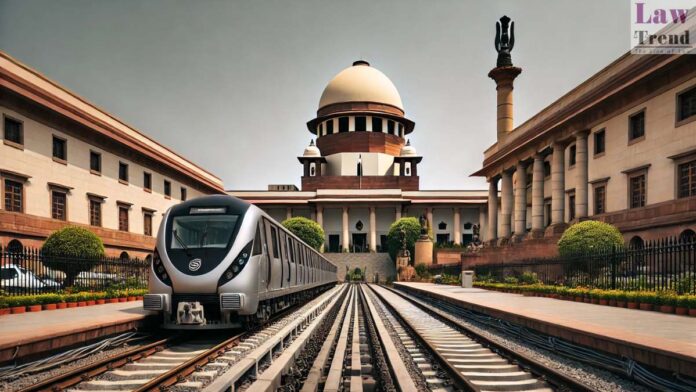In a significant ruling, the Supreme Court of India awarded ₹8,00,000 in compensation to Doli Rani Saha, the sister of the deceased Swapan Kumar Saha, who lost his life in a tragic railway accident in 2003. The judgment, delivered by a bench comprising Chief Justice Dr. Dhananjaya Y. Chandrachud, Justice J.B. Pardiwala, and Justice Manoj
To Read More Please Subscribe to VIP Membership for Unlimited Access to All the Articles, Download Available Copies of Judgments/Order, Acess to Central/State Bare Acts, Advertisement Free Content, Access to More than 4000 Legal Drafts( Readymade Editable Formats of Suits, Petitions, Writs, Legal Notices, Divorce Petitions, 138 Notices, Bail Applications etc.) in Hindi and English.




